Black history experts call for apology, reparations
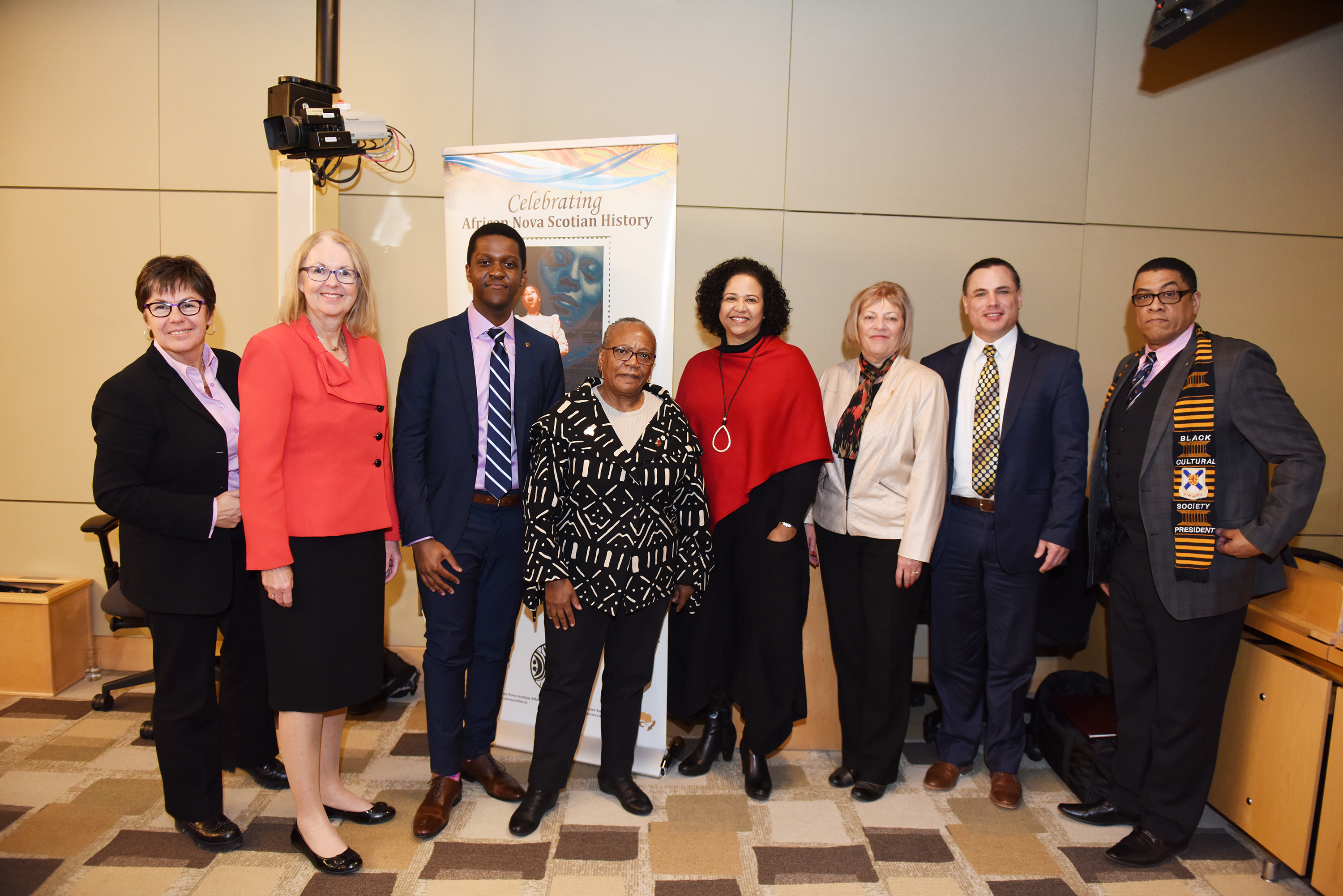
The Canadian government should apologize and pay reparations to descendants of Black people who were slaves in Nova Scotia before Canada became a country, Black history experts told a Senate committee.
An apology and reparations would allow Canada to take a “leadership role” in eliminating racism around the world, they said during a February 28, 2018 committee meeting in Ottawa.
Slavery is often associated with American history, but from 1605 until the late 1700s, Nova Scotia was part of the Atlantic slave trade, said Marjorie Villemarche, director general of La Maison d'Haïti, a Montreal-based agency that helps immigrant families, especially those from Haiti and Nigeria.
“What we’re asking for includes two steps: first, recognition and an apology; then, demonstrate leadership so that other western countries that have had a slave trade do the same thing,” Ms. Villemarche said.
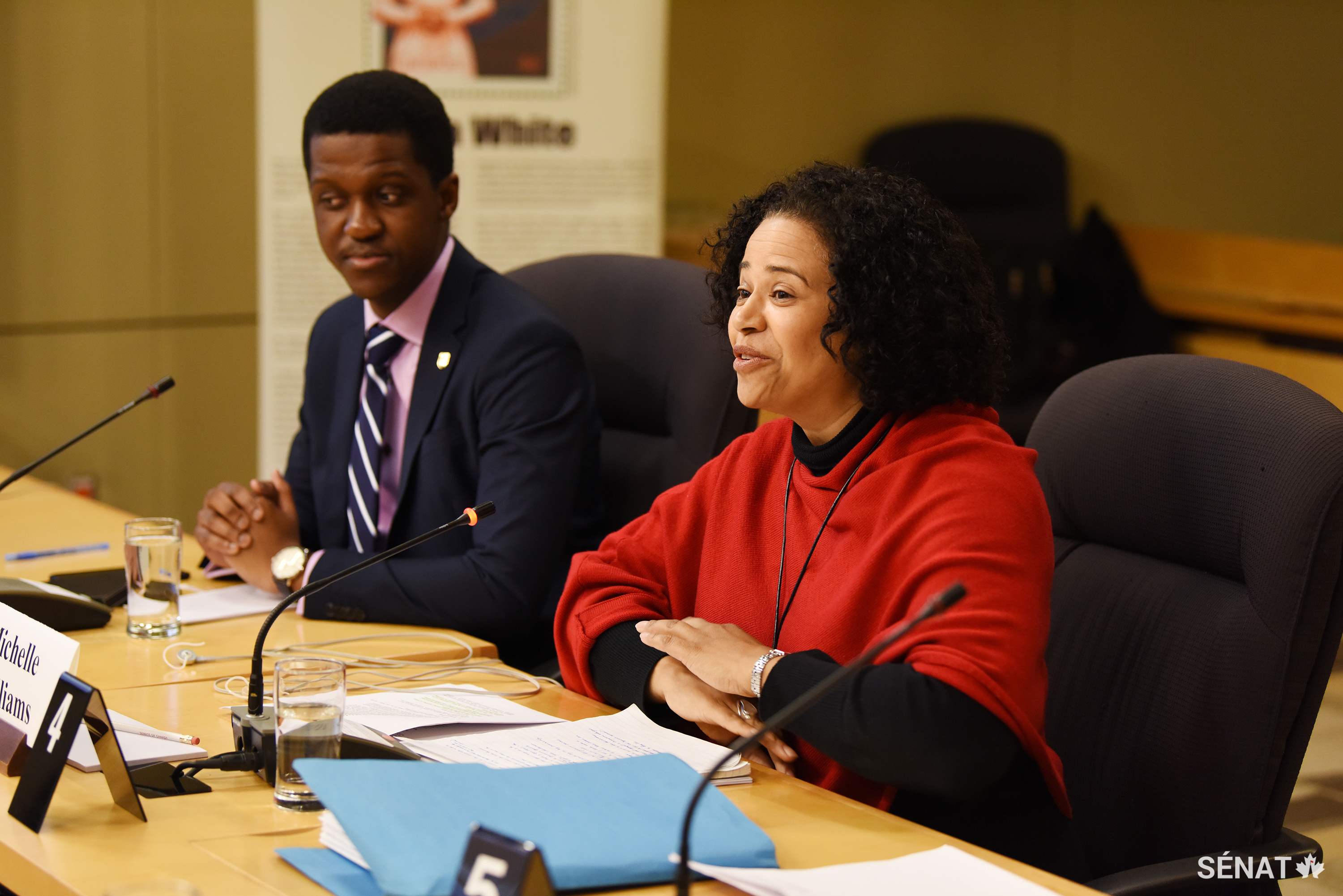
“This crime against humanity should be dealt with in terms of reconciliation and reparations,” she said.
Witnesses raised the issue during a special Black History Month meeting of the Senate Committee on Human Rights that was devoted to a consideration of the United Nations’ proclamation of the International Decade for People of African Descent.
The UN designated the 10-year period beginning in 2015 as a time to promote and protect the human rights of the approximately 200 million people of African descent living in the Americas.
“I’m hopeful that, working together, we can and will combat systemic anti-Black racism and discrimination in this country. But it’s quite clear, it needs partnerships,” said committee chair Senator Wanda Thomas Bernard, the first African-Nova Scotian woman in the Senate.
“On January 30, 2018, Prime Minister Justin Trudeau said that the international decade offers a framework to better address the very real and unique challenges that Black Canadians face. By working together, we can combat anti-Black racism and discrimination and deliver better outcomes for Black Canadians,” Senator Bernard said.
An apology would go a long way toward reconciliation with Black Canadians, said Craig Smith, an RCMP sergeant from Nova Scotia, who is also president and chair of the Black Cultural Society for Nova Scotia.
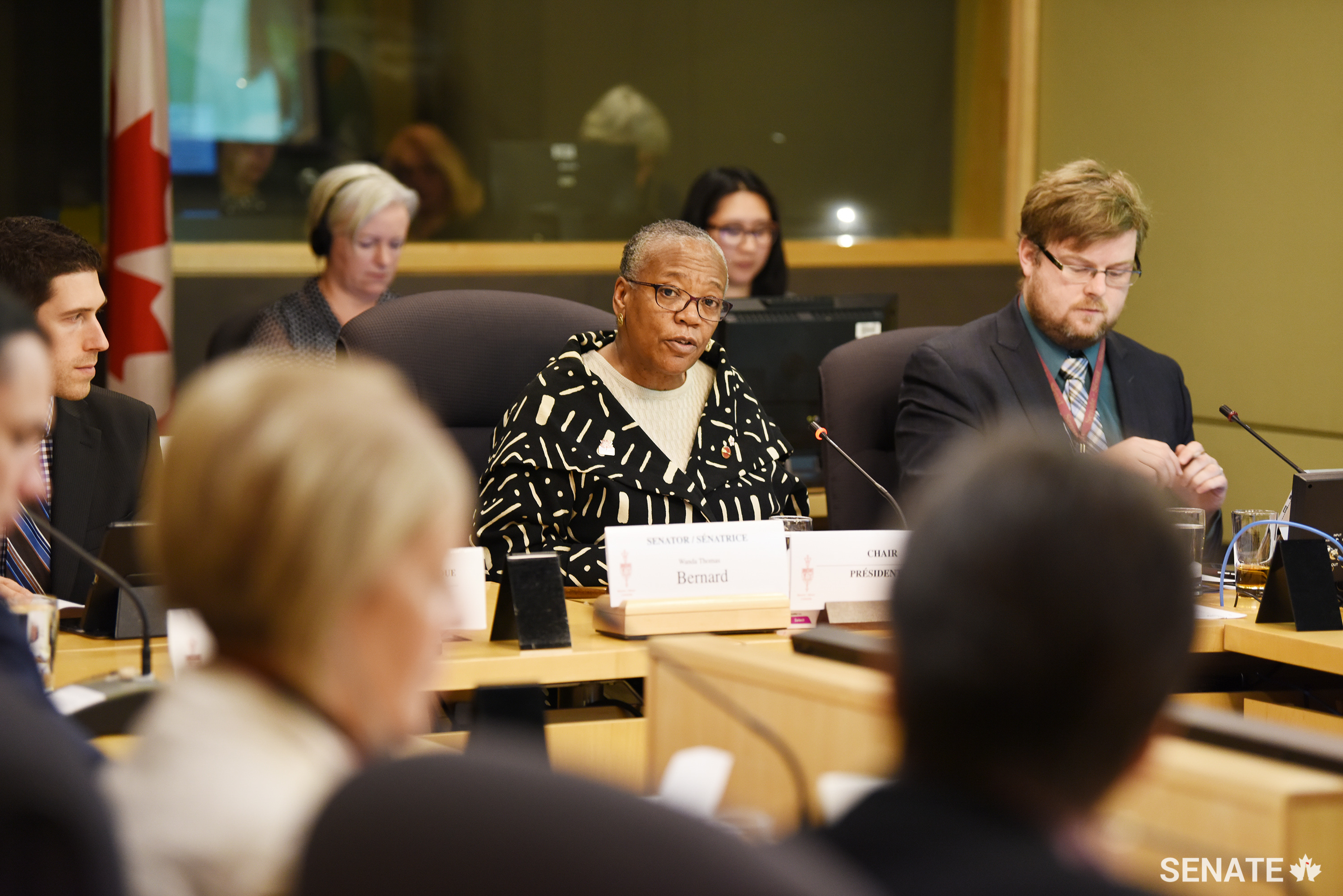
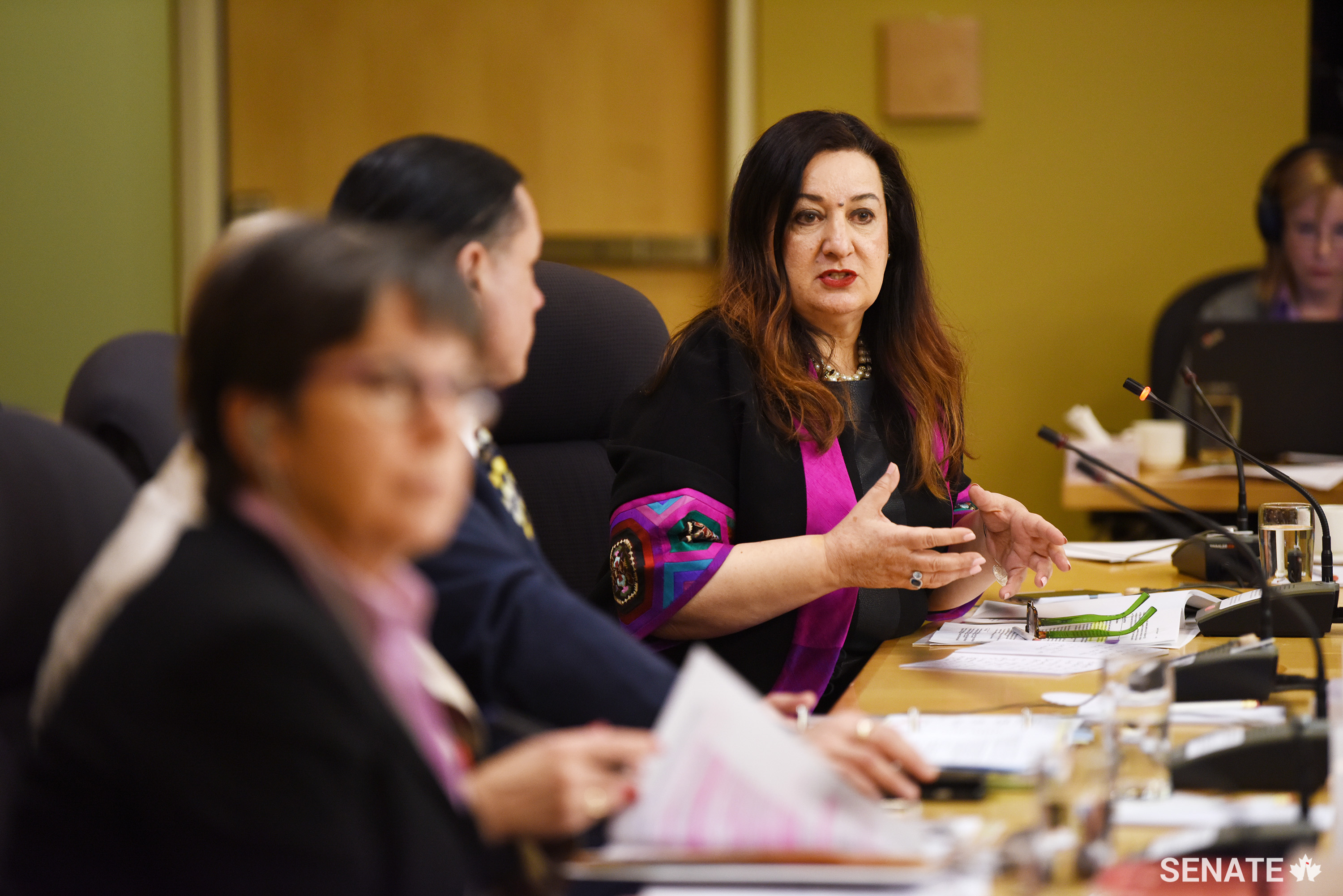
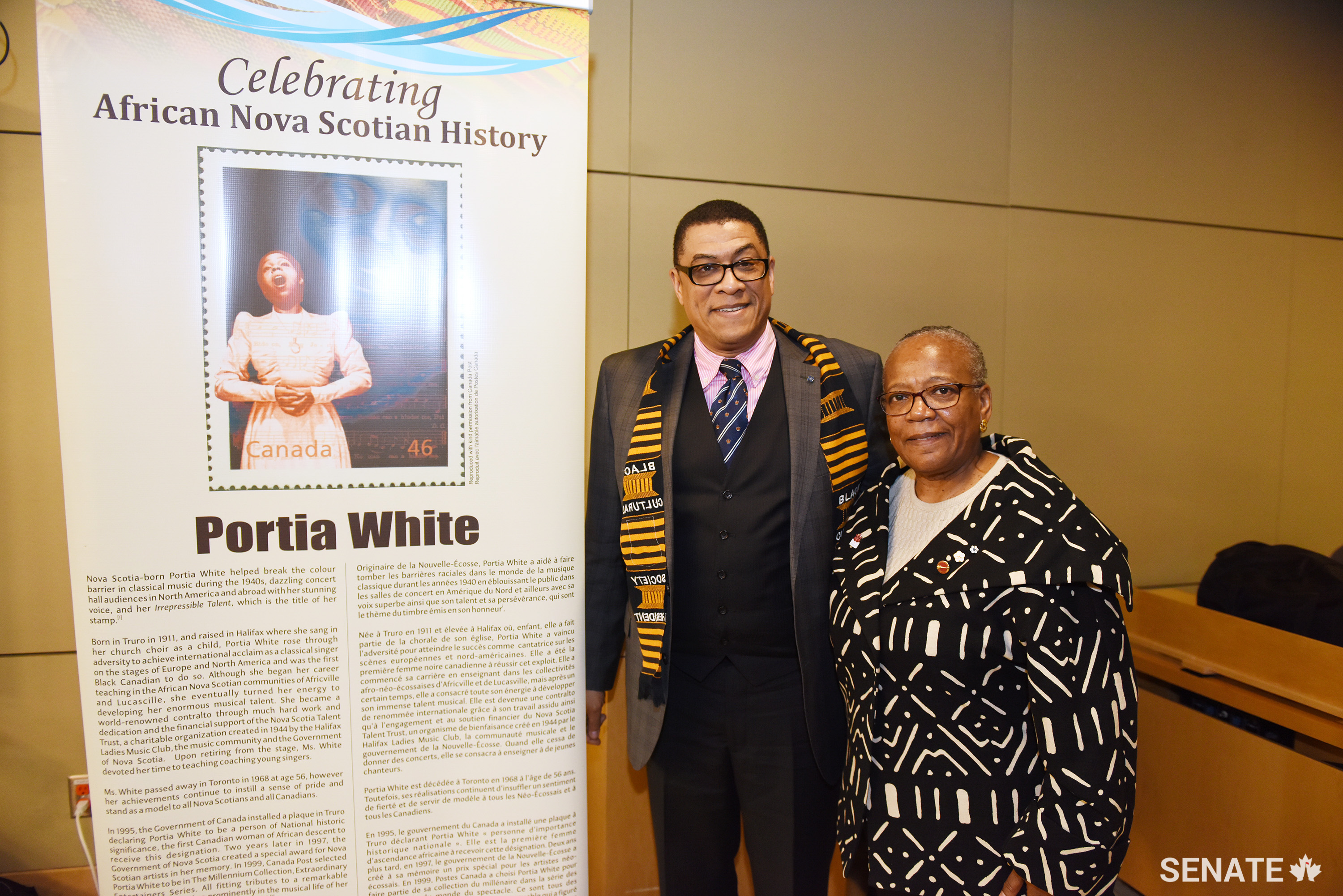
In the past, the Canadian government has apologized to Indigenous groups for the residential schools system, to Chinese-Canadians for a head tax imposed between 1885 and 1923, to Japanese-Canadians for their internment during the Second World War and to the LGBTQ community for the government’s previous discriminatory practices.
If all Canadians had a better understanding of Black history, it would encourage tolerance and reduce racism, Sgt. Smith testified.
“… [If] you don’t know (Black history), it’s so much easier to dismiss a people and their culture, but if you know, even just a little more than we were slaves, then it starts you on a journey of discovery,” Sgt. Smith said.
Committee deputy chair Senator Salma Ataullahjan agreed it’s important to “change this narrative” about Canada’s Black history.
“African cultures have existed for thousands of years. They have a history. They had traditions. Why are we not hearing of that?” Senator Ataullahjan said.
Committee deputy chair Senator Jane Cordy commended witnesses for reminding Canadians that some contemporary social issues have historical roots.
“It makes it more exciting when we have people here to recognize Black History Month, challenges that still await us and good things that are also happening,” Senator Cordy said.
At an earlier session during Black History Month, the Senate’s Human Rights Committee dedicated a meeting to discussing how racism affects Black prisoners.
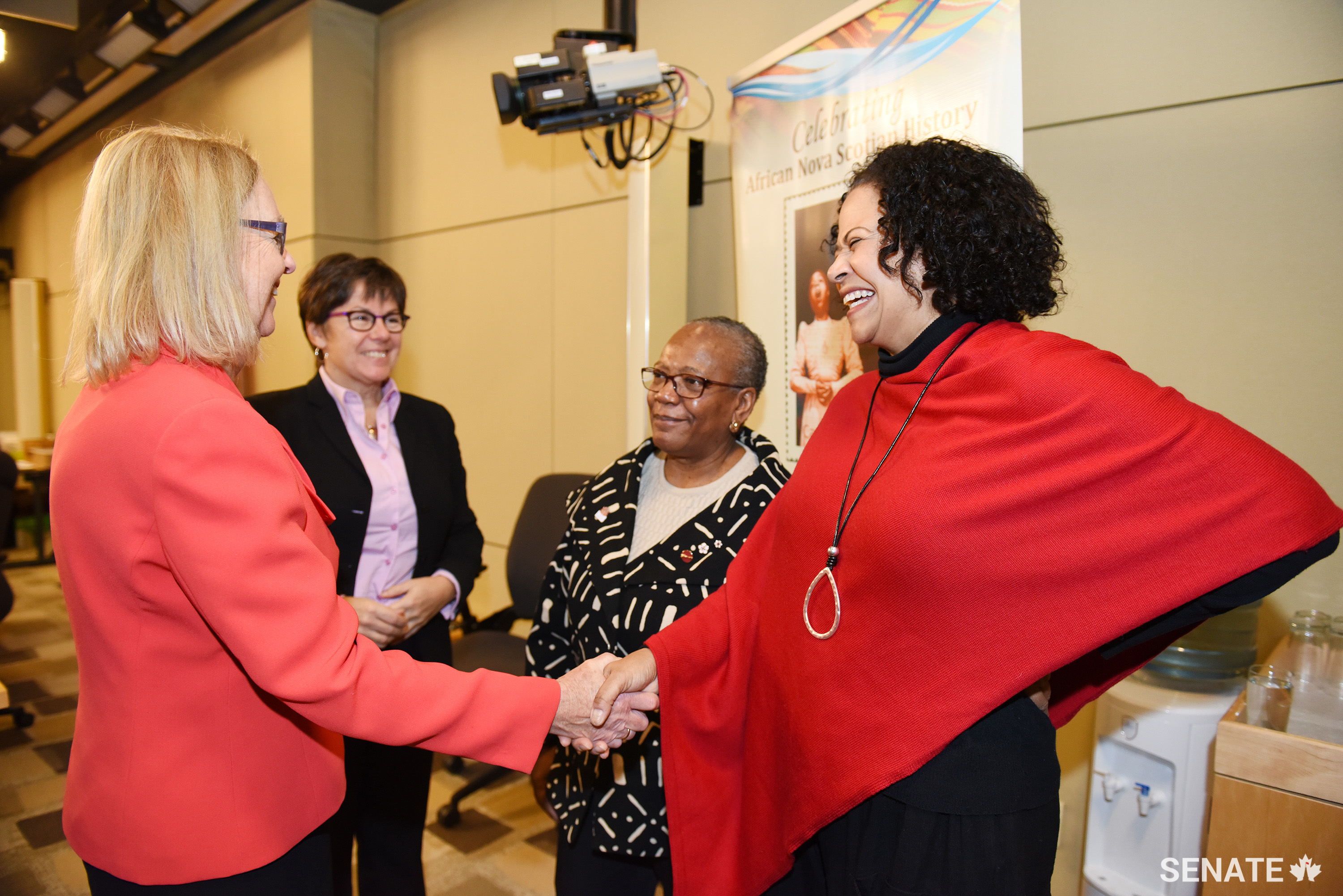
Related articles
Tags
Committee news
Black history experts call for apology, reparations

The Canadian government should apologize and pay reparations to descendants of Black people who were slaves in Nova Scotia before Canada became a country, Black history experts told a Senate committee.
An apology and reparations would allow Canada to take a “leadership role” in eliminating racism around the world, they said during a February 28, 2018 committee meeting in Ottawa.
Slavery is often associated with American history, but from 1605 until the late 1700s, Nova Scotia was part of the Atlantic slave trade, said Marjorie Villemarche, director general of La Maison d'Haïti, a Montreal-based agency that helps immigrant families, especially those from Haiti and Nigeria.
“What we’re asking for includes two steps: first, recognition and an apology; then, demonstrate leadership so that other western countries that have had a slave trade do the same thing,” Ms. Villemarche said.

“This crime against humanity should be dealt with in terms of reconciliation and reparations,” she said.
Witnesses raised the issue during a special Black History Month meeting of the Senate Committee on Human Rights that was devoted to a consideration of the United Nations’ proclamation of the International Decade for People of African Descent.
The UN designated the 10-year period beginning in 2015 as a time to promote and protect the human rights of the approximately 200 million people of African descent living in the Americas.
“I’m hopeful that, working together, we can and will combat systemic anti-Black racism and discrimination in this country. But it’s quite clear, it needs partnerships,” said committee chair Senator Wanda Thomas Bernard, the first African-Nova Scotian woman in the Senate.
“On January 30, 2018, Prime Minister Justin Trudeau said that the international decade offers a framework to better address the very real and unique challenges that Black Canadians face. By working together, we can combat anti-Black racism and discrimination and deliver better outcomes for Black Canadians,” Senator Bernard said.
An apology would go a long way toward reconciliation with Black Canadians, said Craig Smith, an RCMP sergeant from Nova Scotia, who is also president and chair of the Black Cultural Society for Nova Scotia.



In the past, the Canadian government has apologized to Indigenous groups for the residential schools system, to Chinese-Canadians for a head tax imposed between 1885 and 1923, to Japanese-Canadians for their internment during the Second World War and to the LGBTQ community for the government’s previous discriminatory practices.
If all Canadians had a better understanding of Black history, it would encourage tolerance and reduce racism, Sgt. Smith testified.
“… [If] you don’t know (Black history), it’s so much easier to dismiss a people and their culture, but if you know, even just a little more than we were slaves, then it starts you on a journey of discovery,” Sgt. Smith said.
Committee deputy chair Senator Salma Ataullahjan agreed it’s important to “change this narrative” about Canada’s Black history.
“African cultures have existed for thousands of years. They have a history. They had traditions. Why are we not hearing of that?” Senator Ataullahjan said.
Committee deputy chair Senator Jane Cordy commended witnesses for reminding Canadians that some contemporary social issues have historical roots.
“It makes it more exciting when we have people here to recognize Black History Month, challenges that still await us and good things that are also happening,” Senator Cordy said.
At an earlier session during Black History Month, the Senate’s Human Rights Committee dedicated a meeting to discussing how racism affects Black prisoners.



